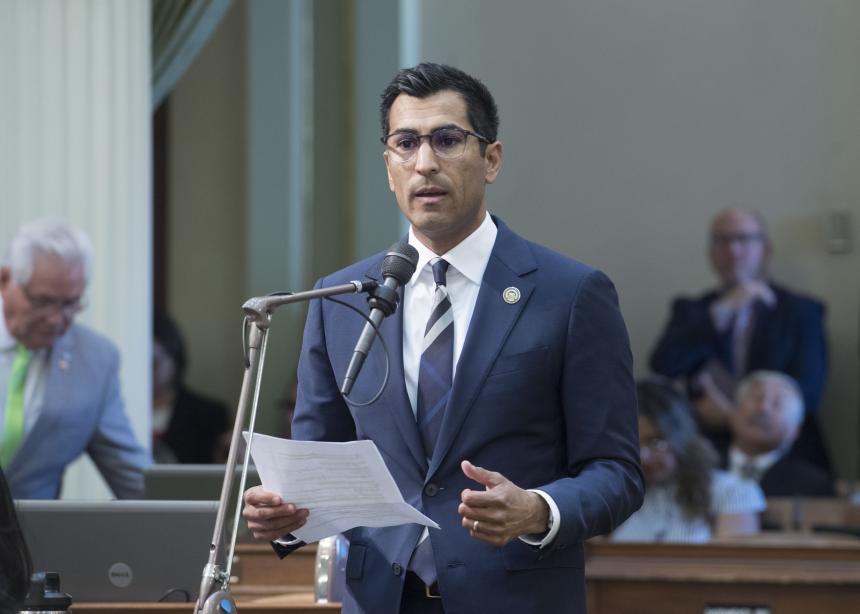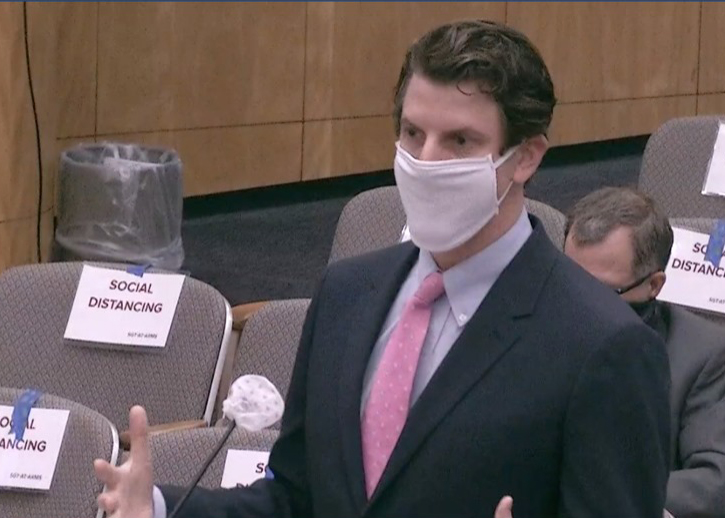A proposal under Assembly Bill 2954 would set a goal for sequestering carbon and reducing greenhouse gas emissions in natural and working lands—a sector spanning 90% of the California landscape. It would add to the state’s existing climate goals under a scoping plan established through AB 32 in 2006.
While some Democratic lawmakers have raised concerns about granting regulatory authority for such a broad goal to a single agency, the Air Resources Board (CARB), the Legislature has advanced the measure through several committees. Proponents highlight the promising ability for natural lands and farms to pull carbon from the atmosphere to store in the soil, acting as a filter for pollution and the greenhouse gases causing global warming.
“We have to maximize methods to capture carbon, utilizing our natural working lands, if we are going to fend off the worst impacts of climate change,” said the bill’s author, Assemblymember Robert Rivas of the Salinas Valley, during a committee hearing on Friday.
Groups for sustainable farming and conservation support the bill, while several prominent business and agricultural trade groups oppose the measure.
“We don't dispute that our lands, many of which are in production agriculture, are one of the solutions to climate change,” said Taylor Roschen, a policy advocate for the California Farm Bureau Federation. “But we also know if we're going to be successful, we need to take a thoughtful approach that really considers the diversity of farm capacity and also prioritizes sustained funding.”
Roschen explained that to invest in the on-farm practices for carbon sequestration the bill calls for, farmers must see “demonstrable increases in yield or quality.” She pointed out that the state has provided some incentives dollars for these climate-smart practices through programs at CDFA and CARB, but the funding has been inconsistent.
Roschen further argued AB 2954 would create winners and losers among farmers. Some commodities naturally have a greater capacity to sequester carbon, and small farmers have less capital to invest, leaving them at a disadvantage. She has also said the measure leaves out thousands of existing on-farm sequestration projects.
In her testimony supporting the bill, Jeanne Merrill, the policy director for the California Climate and Agriculture Network, countered that the measure preserves a farmer’s flexibility and diversity in determining agricultural practices.
“Nothing in AB 2954 would require the state to impose regulations on agriculture to limit or change the types of crops grown in California,” she said, adding the bill would instead scale up CDFA’s successful efforts with the Healthy Soils Program.
Democratic Senator Bob Wieckowski of Fremont (above) dug deeper into the funding issue with incentives programs. He said the Senate Budget Committee did direct $100 million within the budget to natural and working lands, but the governor and Assembly removed it during final negotiations.
During the Brown administration, the Legislature began funding the programs with revenues from the state’s cap-and-trade program. The most recent quarterly auction, however, delivered just $25 million. That will be split among emissions reduction programs as well as a safe drinking water initiative and wildfire management efforts.

Asm. Robert RIvas, D-Hollister
In the same budget proposal, Wieckowski had proposed granting CARB the authority to change the price for pollution credits in auctions. Ag groups and fellow Democrats felt that would unfairly raise fees on industries just to generate more revenues for the budget. The administration agreed to remove the item from the budget bill, calling for the Legislature to take up the measure separately.
“I am concerned that the Air Board, certainly right now in cap-and-trade, hasn't corrected the inefficiencies,” said Wieckowski on Friday.
He argued the bill, by factoring in the amount of carbon already being sequestered within natural and working lands, would let CARB “off the hook” for addressing the current inadequacies in the cap-and-trade market and the Climate Scoping Plan.
He called AB 2954 “irrelevant” to the state’s climate goals because the Climate Scoping Plan did not include natural and working lands within the greenhouse gas inventories. He said the bill should instead require CARB to inventory such emissions and for farmers to either lower their own emissions or purchase carbon offset credits.
Critics also took issue with the bill’s provision that the carbon sequestration goal would support the state’s efforts to achieve carbon neutrality. Leah Silverthorn, a policy advocate for the California Chamber of Commerce, said this would be the first time that “carbon neutrality” has been codified into state law and argued the Legislature should first decide what that term means before assigning goals for it.
Silverthorn also argued CARB is already focused on this area, having released a draft natural and working lands climate plan in 2019. In an earlier hearing, she said the bill focuses too heavily on an industry that contributes just 8% of the greenhouse gas emissions in the state.
Wieckowski argued the carbon sequestration goal is too broad for just CARB and the bill should include the Natural Resources Agency. Republican Sen. Brian Dahle of Lassen County said CDFA needed to be at the table as well.

Sen. Henry Stern, D-Canoga Park
Dahle was also frustrated AB 2954 was not related to COVID-19 and said it should not be considered an urgent measure for this legislative session. Stockton Assemblymember Susan Eggman, a moderate Democrat who chairs the Assembly Agriculture Committee, abstained from an earlier vote on AB 2954 for the same reason.
Sen. Henry Stern of Los Angeles and Ventura Counties, a former environmental attorney, countered that the bill would not leave sole authority with CARB, adding that many farmers he had spoken with have had an “incredibly creative and entrepreneurial spirit” when it comes to climate-smart practices.
“The only way for the California farmer to be able to compete in the future of agriculture is by embracing this regime,” he said.
Stern argued this is the time to consider the measure, ahead of CARB’s update to the Scoping Plan that is scheduled to begin in 2021. He said AB 2954 would give the state the tools to inject new forms of capital into the sector, boosting working lands as California’s largest investment for climate mitigation and sequestration.
In response to the many concerns, Rivas said the bill simply asks CARB to explore possible sequestration options and policy incentives that it would then bring back to the Legislature later for adoption and for considering in future budgets.
Despite Wieckowski abstaining and two Republicans voting against the bill, the committee passed it, moving the measure to the Senate Appropriations Committee, which will make its decision on Thursday. The bill has already passed Assembly Appropriations, with a legislative analyst estimating the costs to CARB for implementing AB 2954 to be “minor and absorbable.”
For more news, go to: www.Agri-Pulse.com


